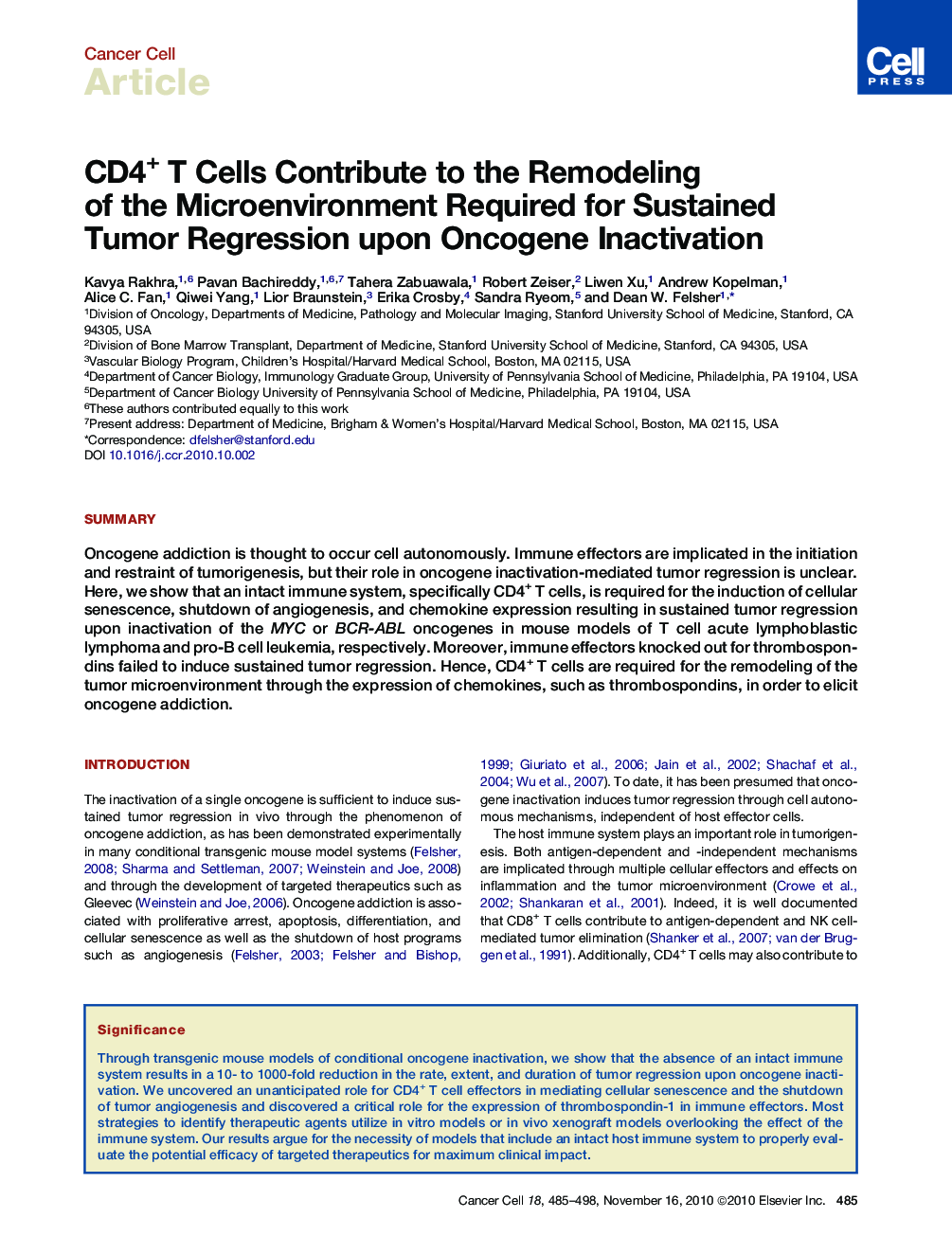| Article ID | Journal | Published Year | Pages | File Type |
|---|---|---|---|---|
| 2107667 | Cancer Cell | 2010 | 14 Pages |
SummaryOncogene addiction is thought to occur cell autonomously. Immune effectors are implicated in the initiation and restraint of tumorigenesis, but their role in oncogene inactivation-mediated tumor regression is unclear. Here, we show that an intact immune system, specifically CD4+ T cells, is required for the induction of cellular senescence, shutdown of angiogenesis, and chemokine expression resulting in sustained tumor regression upon inactivation of the MYC or BCR-ABL oncogenes in mouse models of T cell acute lymphoblastic lymphoma and pro-B cell leukemia, respectively. Moreover, immune effectors knocked out for thrombospondins failed to induce sustained tumor regression. Hence, CD4+ T cells are required for the remodeling of the tumor microenvironment through the expression of chemokines, such as thrombospondins, in order to elicit oncogene addiction.
Graphical AbstractFigure optionsDownload full-size imageDownload high-quality image (289 K)Download as PowerPoint slideHighlights► Oncogene addiction involves both cell autonomous and nonautonomous mechanisms ► An immune system is required for sustained tumor regression upon inactivation of oncogenes (MYC or BCR-ABL) ► CD4+ T cells regulate cellular senescence and angiogenesis in the tumor microenvironment ► TSP-1 secretion from immune cells is required for sustained tumor regression upon inactivation of an oncogene
